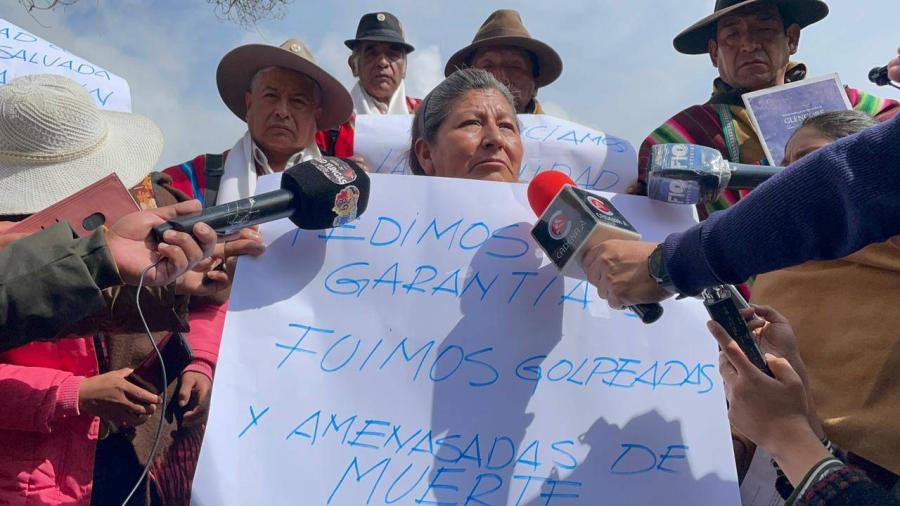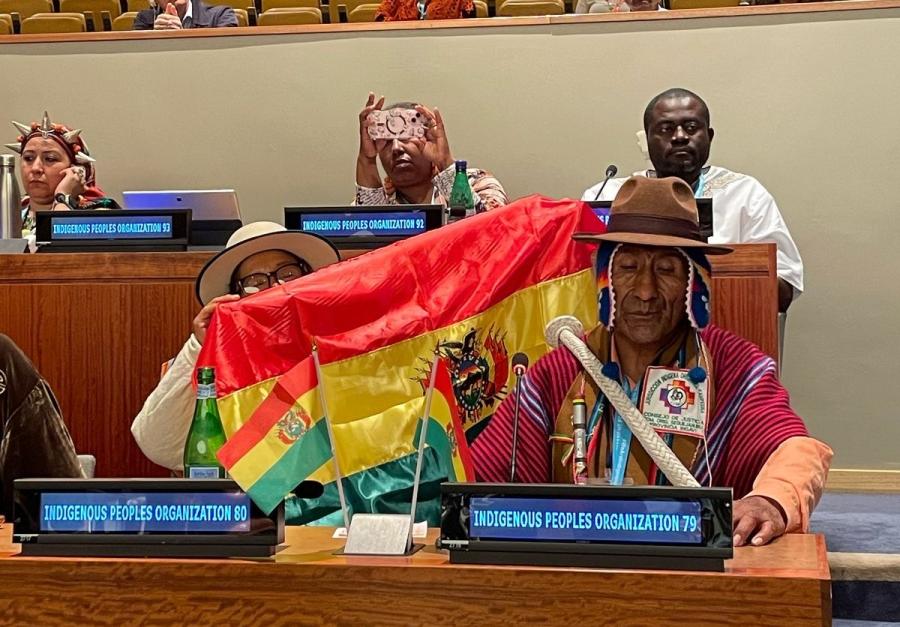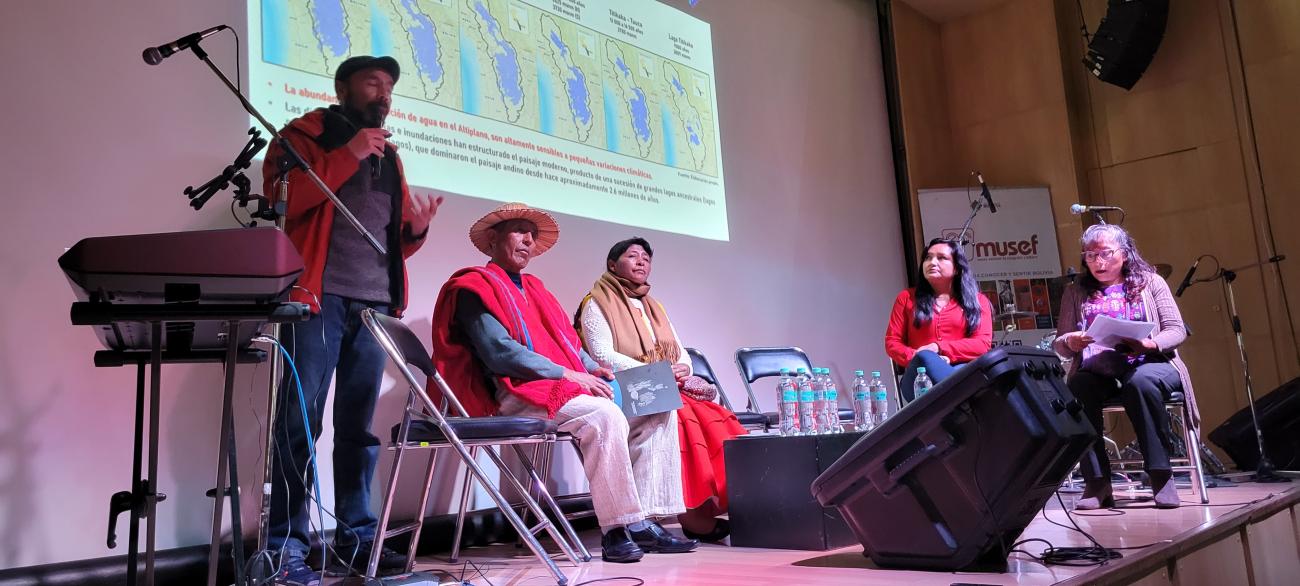
By Pablo Xol (Maya Qʼeqchiʼ, CS Staff)
In a joint effort to continue raising awareness about the critical situation of Lake Titicaca, Cultural Survival, through its Indigenous Rights Radio Program, organized the event "Listening and Exchange Session: Mama Qota is at Risk" on March 28 - 29, 2025. This gathering brought together community communicators, environmental activists, Indigenous leaders, and researchers from Bolivia and Peru—countries that share the basin of the world's highest navigable lake, which is currently threatened by pollution, extractivism, and climate change.
A Collective Cry to Raise Awareness
The event, held at the National Museum of Ethnography and Folklore (MUSEF) in La Paz and the Wayna Tambo Cultural Center in El Alto, combined dialogues, workshops, and the presentation of the radio documentary "Mama Qota is at Risk," produced by Cultural Survival's Indigenous Rights Radio in early 2024. The documentary elevates the voices of Indigenous communities affected by the pollution of Lake Titicaca, documents clean-up initiatives by civil society organizations in conjunction with riverside communities, highlights the role of scientists and researchers committed to Lake Titicaca, and offers a sound tour of this large body of water.
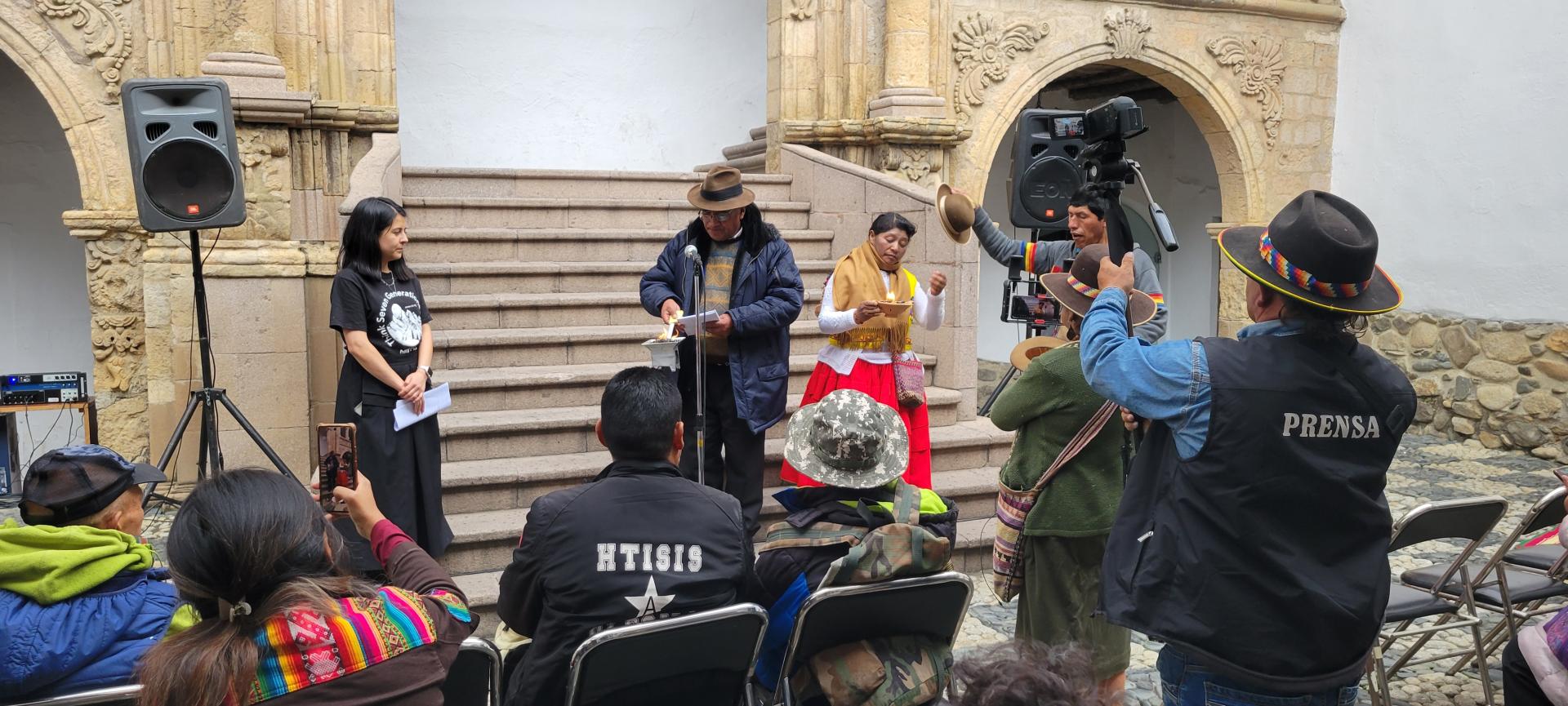
As part of the first day of activities, some people who interviewed for the radio documentary took part in a public panel. Key panelists, climate change experts, and residents of communities affected by the lake pollution highlighted these challenges. Gonzalo Lora, a biologist and activist, warned of "irreversible" damage to the ecosystem due to pollution and invasive species. Oscar Limacchi, an Aymara totora weaving artisan, denounced how the pollution has ruined his craft, the economic foundation of his community. Martha Coila, a resident of the Uros Islands in Peru, recounted the impact of climate change on tourism, her people's main livelihood. Katherine Illanes, a member of the Institute for Research and Action for Integral Development, presented community-based alternatives to mitigate pollution.
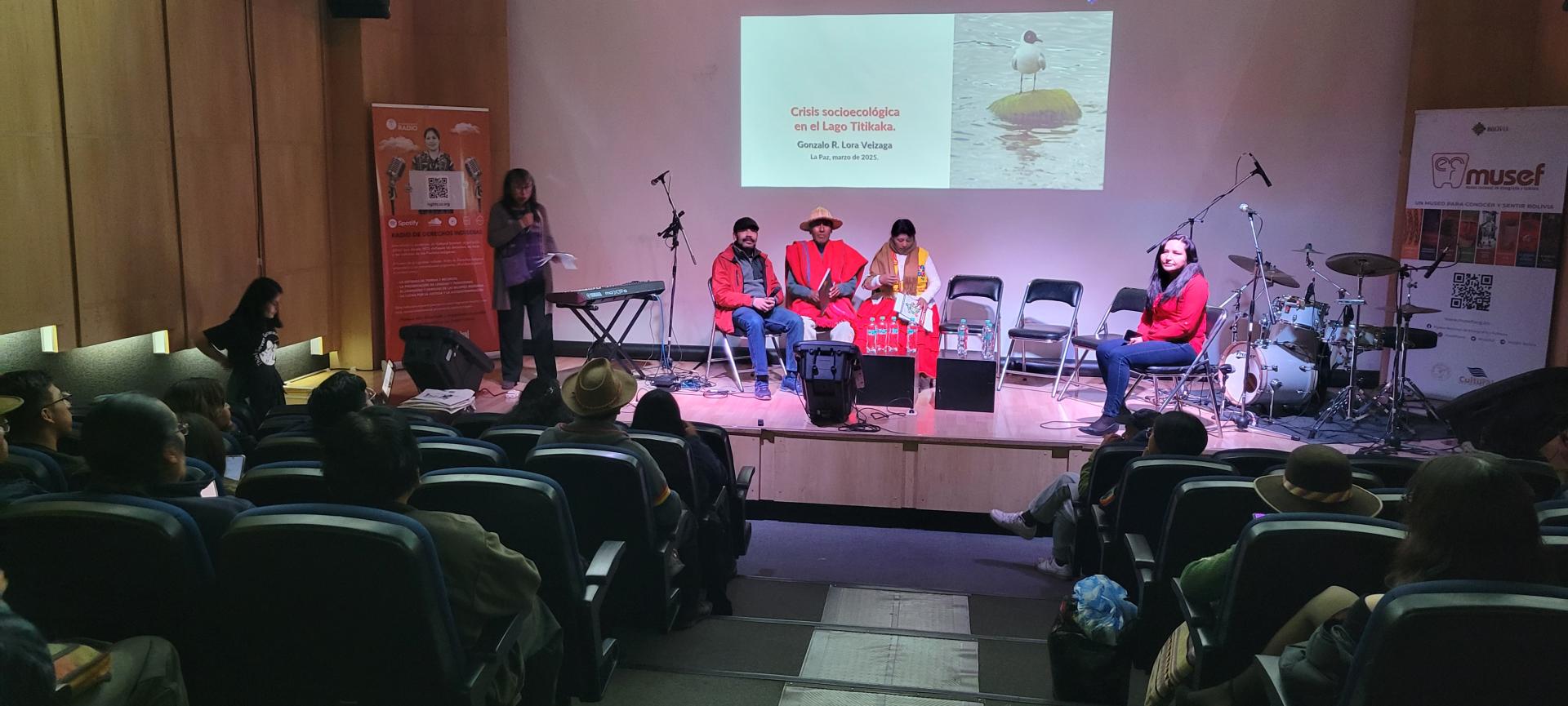
Community Solutions
On the second day of the event, at the Wayna Tambo Cultural Center, 27 community communicators and members of riverside communities mapped the main problems affecting Lake Titicaca and proposed solutions. Some of the threats they identified were: an alarming amount of plastic pollution from rivers that flow into Lake Titicaca through cities such as El Alto, Viacha, and Laja; disappearance of native fish and other endemic species; and a lack of wastewater treatment. Solutions proposed to these threads included: building a binational network of communicators; conducting quarterly cleanup campaigns; and establishing a research center dedicated to the lake.
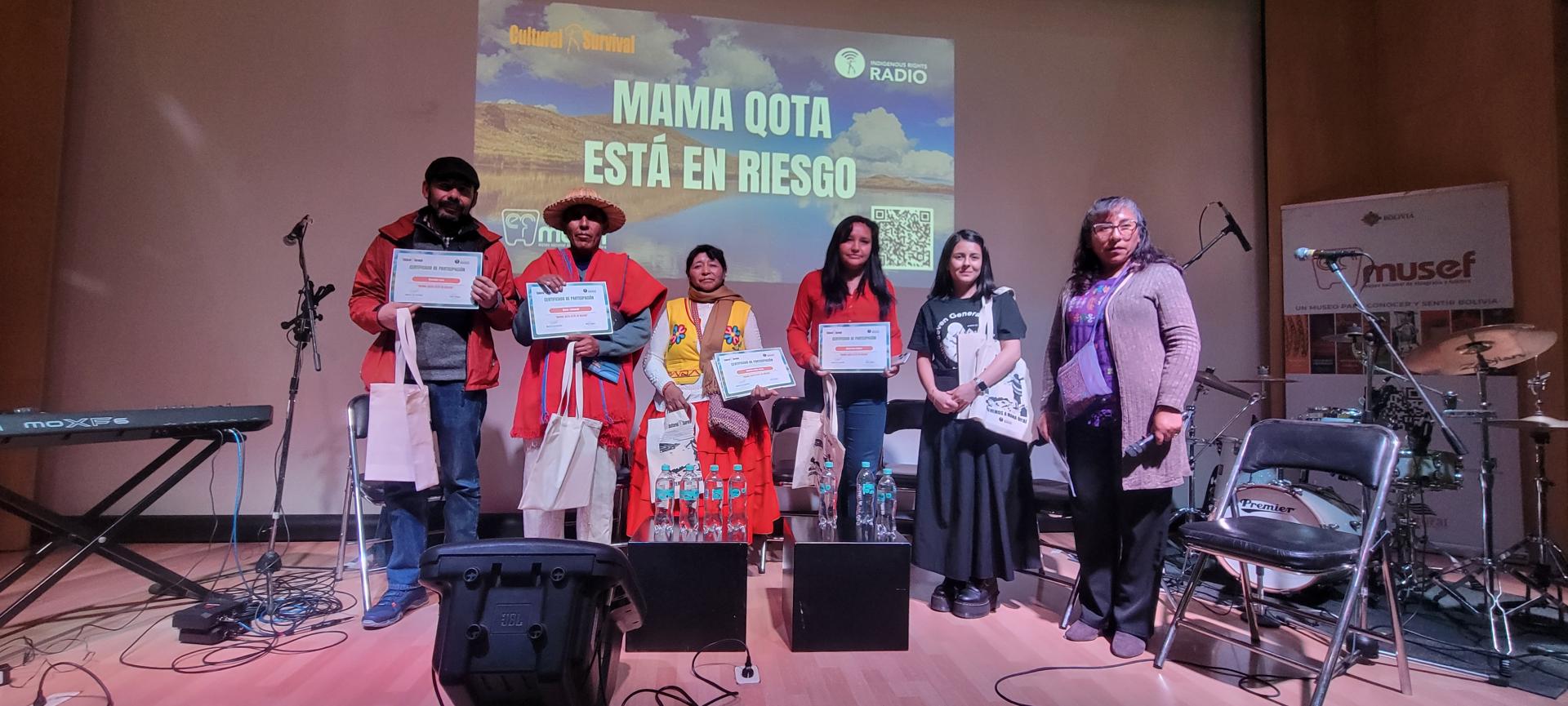
Commitments and Continuity
As a follow-up to this meeting and the proposals made by the participants, Indigenous Rights Radio funded nine community radio stations so they could develop radio productions to amplify local voices, generate communication materials that inform and raise awareness about the situation on Lake Titicaca, and build networks for exchanges between community media outlets. Furthermore, the need to continue with more consistent and long-term actions was also reaffirmed. Projects such as reforestation with the guidance and support of Indigenous communities, proposed by Gonzalo Lora, and a series of territorial meetings coordinated by Wayna Tambo were discussed.
During this event, it became clear that Lake Titicaca is vital not only for the territories of Bolivia and Peru but also for its preservation, which is a global call. The power of community radio as a tool of resistance was also reaffirmed, and the urgency of undertaking collective actions to benefit the waters, lands, and forests that give us life and sustenance was emphasized.
"Fighting for the well-being of Lake Titicaca is fighting for life itself."
Short documentary Mama Qota está en riesgo (en espanol)
